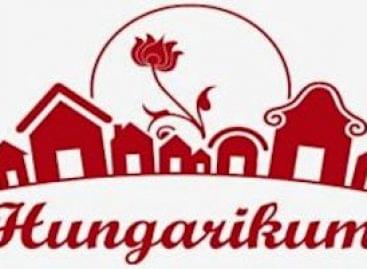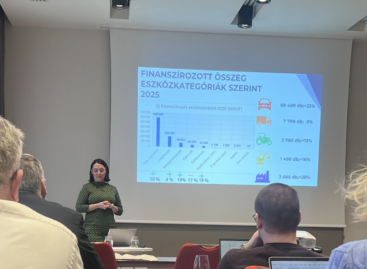PwC survey: Hungarian CEOs in wait-and-see mode, expecting a slowdown in 2020
Most Hungarian CEOs predict a slowdown in both global and Hungarian economic growth in 2020, according to PwC’s latest Hungarian CEO Survey. While CEOs are confident about their own company’s growth prospects, they are pessimistic about the economic outlook: in contrast with global results, a smaller percentage of Hungarian CEOs expect the economy to grow, and most of them do not foresee an increase in headcount. As in last year’s survey, respondents identified the skills shortage as the top threat to economic growth. It is a new trend this year that CEOs are increasingly embracing climate change opportunities, such as developing new products and services and providing a reputational advantage for their organisation.
This is the ninth year that PwC Hungary has gauged the opinions of Hungarian CEOs in cooperation with the Confederation of Hungarian Employers and Industrialists (MGYOSZ). The number of respondents this year was 223. The majority of Hungarian CEOs now expect a decline in the rate of global (66%) and Hungarian (60%) economic growth, which is their gloomiest prediction yet. As in previous years, CEOs expect the rate of slowdown for Hungary to be more subdued over the next 12 months.
Hungarian business leaders remain confident about their own companies’ financial performance: 81% of them are confident about their companies’ financial prospects for both the next 12 months and for the next three years. In order to drive revenue growth, the activities Hungarian CEOs are planning in 2020 include improving operational efficiencies (81%), launching a new product or service (60%), and organic growth (53%). By contrast, acquisitions feature less and less prominently in their growth plans.
According to Tamás Lőcsei, PwC Hungary’s CEO, the results of this year’s survey show that Hungarian CEOs have a clear vision of how they can create value for their clients. This should explain why they remain confident about their own organisations’ outlook while predicting a slowdown in economic growth. This is also an encouraging sign for the long-term growth prospects of Hungarian companies.
The threats: skills shortages, exchange rate volatility, and uncertain economic growth
In line with their expectations regarding the economic outlook, CEOs are more reluctant to increase their headcount. As in previous years, CEOs consider skills shortages (88%) and changing workforce demographics (70%) to be the main barriers to growth. Other top threats include exchange rate volatility (66%), rising employee benefits and pension costs (63%), and uncertain economic growth (58%), which has seen a significant increase in recent years. Over-regulation has also remained on the list of top threats to organisations’ growth prospects.
“In fact, Hungarian CEOs have consistently ranked over-regulation among the top threats for several years,” said Barbara Koncz, Director at PwC Hungary’s Tax and Legal Services. In this year’s survey, nearly two-thirds (64%) of CEOs say they consider over-regulation to be one of the key barriers to growth. “Most of them are also concerned about increasing legislation around online content, compliance with data protection regulations, and industry-specific questions,” Barbara Koncz added.
When asked about which emerging technology areas are the most important for business and government to collaborate on, CEOs ranked cybersecurity and digital privacy as the two most important areas, followed in third place by artificial intelligence.
Upskilling: a worthwhile investment?
According to our survey, most companies are just beginning their upskilling journey: 27% of respondents have defined the skills needed to drive their future growth strategy, and 23% are planning to improve their employees’ and leaders’ knowledge of technology. It has also emerged from this year’s survey that the CEOs of companies at the forefront of upskilling are more confident about the economic outlook.
We also looked at the key challenges companies currently face in their upskilling efforts: the biggest challenges are to retain upskilled employees and motivate employees to apply their learning. On the positive side, both beginning and more advanced upskilling organisations are achieving higher workforce productivity, a stronger corporate culture, and improved talent retention as a result of their upskilling programmes.
According to Péter Futó, president of the Confederation of Hungarian Employers and Industrialists: “Under the current labour market conditions, the biggest challenge is to find and retain employees who can be instrumental in implementing the company’s strategy. The key to corporate success is a workforce that is willing and able to learn. However, fostering a culture of learning and motivating employees to learn is not only the employer’s concern: the ability to develop also enhances the labour market value and position of employees. This ability is at least as important as existing knowledge, as skills should keep pace with changes in the company, market conditions and the technological environment.”
Climate change: finding opportunity in crisis
In last year’s survey, the number of respondents citing climate change as a top threat doubled from the year before. This year, however, there is hardly any perceptible change. At the same time, CEOs are more likely to recognise the silver lining in the climate change cloud: two-thirds of them say that investing in “green” initiatives provides a reputational advantage, and nearly half of them realise that going green will afford significant new product and service opportunities.








